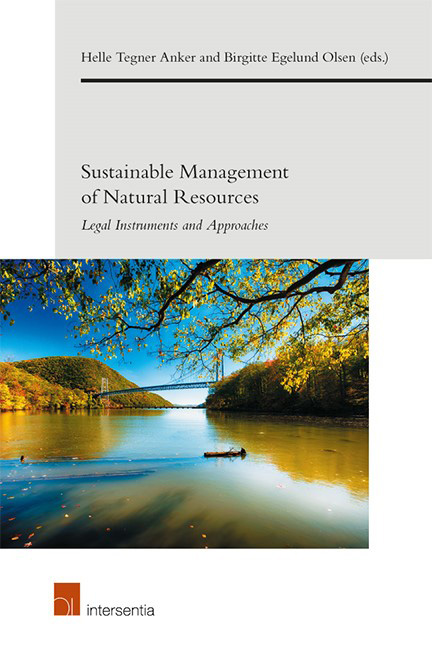Book contents
- Frontmatter
- Contents
- PART I INTRODUCTION
- PART II SUSTAINABILITY IN EU AND INTERNATIONAL LAW
- PART III SUSTAINABLE MANAGEMENT OF WASTE
- PART IV ENVIRONMENTAL AND CLIMATE LITIGATION
- PART V ECOSYSTEM APPROACHES AND ADAPTIVE MANAGEMENT
- Chapter 9 Managing Environmental Utilisation Space in the Dutch Environment and Planning Act
- Chapter 10 Reconciling Adaptive Management Strategies with the EU Nature Directives: the Unfortunate Case of the Dutch Integrated Approach to Nitrogen
- Chapter 11 Balancing Nature Protection and Other Public Interests: the Czech Example
- PART VI SUSTAINABLE RESOURCE MANAGEMENT: SPECIFIC ISSUES 193
Chapter 11 - Balancing Nature Protection and Other Public Interests: the Czech Example
from PART V - ECOSYSTEM APPROACHES AND ADAPTIVE MANAGEMENT
Published online by Cambridge University Press: 31 January 2019
- Frontmatter
- Contents
- PART I INTRODUCTION
- PART II SUSTAINABILITY IN EU AND INTERNATIONAL LAW
- PART III SUSTAINABLE MANAGEMENT OF WASTE
- PART IV ENVIRONMENTAL AND CLIMATE LITIGATION
- PART V ECOSYSTEM APPROACHES AND ADAPTIVE MANAGEMENT
- Chapter 9 Managing Environmental Utilisation Space in the Dutch Environment and Planning Act
- Chapter 10 Reconciling Adaptive Management Strategies with the EU Nature Directives: the Unfortunate Case of the Dutch Integrated Approach to Nitrogen
- Chapter 11 Balancing Nature Protection and Other Public Interests: the Czech Example
- PART VI SUSTAINABLE RESOURCE MANAGEMENT: SPECIFIC ISSUES 193
Summary
ABSTRACT
This paper focuses on the broader scope and the implications of recent changes in the Czech nature conservation policy in which EU rules on habitat protection are perceived as a major obstacle to infrastructure development. It analyses the case law of the Czech Supreme Administrative Court to see whether it is in compliance with the requirements of the Habitats Directive (HD), as interpreted by the Court of Justice of the European Union. In particular, it focuses on interpretation of the most important conditions for derogating procedures under the Habitats Directive, the absence of an alternative solution, and the existence of imperative reasons of overriding public interest.
The author concludes that there is basically no major difference in divergent procedures between the long-established national system of nature protection and the requirements of EU law. Furthermore, the Czech courts interpret individual conditions for derogation in the same or similar way to the findings of the Court of Justice. In practice, however, the goals of EU law are undermined by incorrect transposition of the Habitats Directive and constant attempts of the Czech government to avoid its protective regime.
INTRODUCTION
The EU has long been committed to protecting nature, namely since the adoption of the first version of the Birds Directive (BD) in 1979. Even nowadays, however, EU law does not constitute a comprehensive system that encompasses all the aspects of managing natural resources. Biodiversity protection in the Member States is therefore two-fold in its structure, based on the implemented EU rules and the specific national system, which often has its legal roots far in the past. It seems, consequently, that the effectiveness of legal instruments and approaches towards biodiversity protection and the overall quality of the sustainable management of natural resources in the Member States depends on the relationship between EU law and the traditional system of nature conservation. Where these two systems of legal regulations collide, their goals are simply jeopardized.
- Type
- Chapter
- Information
- Sustainable Management of Natural ResourcesLegal Instruments and Approaches, pp. 177 - 192Publisher: IntersentiaPrint publication year: 2018

